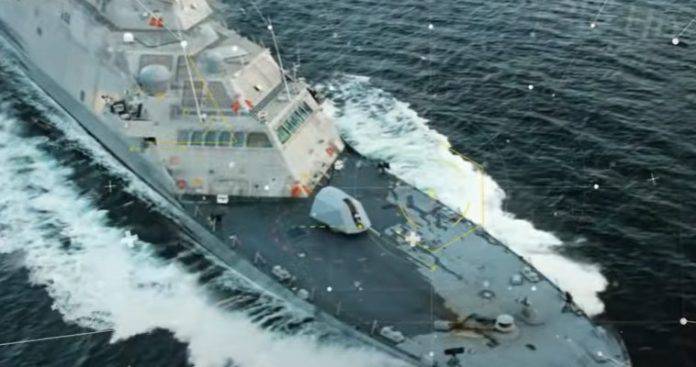Kostas Grivas: Why is the US not giving Greece what it offered in 2005 – Two relentless questions for the government
10/11/2020
One of the most persistent stereotypes of Greek foreign policy, but also of many Greeks, is the view that the United States will (at some point…) resolutely support Greece vis-a-vis Turkey. This is because Turkey is becoming a hostile geopolitical figure to the West, while in contrast, Greece is highly disciplined, to the point of “misunderstanding”!
Reality, unfortunately, may be the opposite. That is, precisely because Turkey is becoming increasingly hostile, and therefore unpredictable, and Greece increasingly friendly to US geostrategy, and therefore is a given, the US may turn to a policy that will appease Turkey and limit Greece’s capabilities to face it.
This of course goes against conventional wisdom, but it is something that is already happening in other parts of the world. One of them is the China-Taiwan system, or to be more precise the People’s Republic of China (PRC) and the Republic of China (RoC), since Taiwan does not exist. The Taipei government has claimed the title of legitimate government throughout China, just as the Beijing government has claimed sovereignty over all Chinese territory, including Taiwan.
The example of “given” Taiwan
China is known to be the great geopolitical adversary of the United States, while Taiwan is the most important ally of the Americans in the region. One would therefore assume that Washington would do the same to Taipei. Especially with regard to weapons systems, it would be normal for them to gladly offer the Taiwanese armed forces whatever they ask for.
In reality, however, the US sells only weapons systems to Taiwan that do not cause “excessive” insecurity to Beijing, because they do not want to “irritate” it and lead to reactions that would probably escalate the rivalry. In addition, the US government can afford to pursue this policy, because Taiwan is a given.
Thus, the notion that the United States will fully support a friendly country in its confrontation with another that is hostile to Washington, or at least not so friendly, is inherently wrong. In fact, the choice will be based on which is the most powerful and unpredictable country in the system and not on the criteria of friendliness, as is the case in the metropolitan systems of China and Taiwan. This may happen, if it does not already happen, in the Greek-Turkish system.
Specifically, Turkey is becoming a protagonist and unpredictable factor on the wider Eurasian chessboard, while Greece seems to have chosen to fully integrate into the American geopolitical edifice and consequently has reduced its geopolitical unpredictability to practically nothing. To be precise, we have a serious indication that something similar is already happening, analyzing the program of the new frigates for the Hellenic Navy.
The puzzle with the frigates
According to the information that has been published, the American MMSC frigate made by Lockheed Martin appears as the favorite. The public debate so far refers to comparisons between American ships and the French Belh@rra. However, in order to see more fully the geopolitical dimension of the MMSC option, we should compare it with the older American proposal for the new frigate of the Greek Navy.
It is often stated that the United States does not release the long-range SM-2 air defense missile for Greece. This, however, is not the case or at least has not been the case in the past. Specifically, in the distant 2005, the USA offered Greece the Aegis air defense system with the SPY-1 radar and the SM-2 Block IIIB surface-to-air missiles, with a range of more than 170 km. This range exceeded the area defense requirements, as the Hellenic Navy has been seeking for decades. It is pointed out that Aegis is also owned by Lockheed Martin.
Naturally, then, one would expect that after 15 years, when the air threats are much greater than then, we would start from where we left off and the American proposal for the sale of Aegis with SM-2 would return. Instead, we moved on to the past. We seem ready to spend, more or less, five billion dollars on the purchase of frigates with weapons systems and sensors, which would be very good for the 80’s when we bought our first frigates, “Elli” and “Lemnos “, but have nothing to do with the current threat environment.
Nor does the argument that these frigates are the “ticket” for the acquisition of two used Arleigh Burke destroyers or Ticonderoga cruisers, with the Aegis system and SM-2 missiles, make any sense. Why, if our goal is really to get this combination, don’t we just buy it and so in the future find ourselves with six ships with area air defense capabilities and not with two?
Two clear and relentless questions
And one wonders: Why is this happening? The usual answers are not enough. Because here we are talking about American systems, of the same company, at about the same cost, that both would offer construction work to the Greek shipyards that have passed into American hands. The only difference is that Aegis would drastically enhance the operational capabilities of the Hellenic Navy while upgrading Greece as part of the US geopolitical strategy.
We conclude that this very strengthening of the Navy’s operational capabilities and the upgrading of the country’s geopolitical function may not be so desirable at the moment. But for whom is it not desirable? A crucial issue arises that needs to be clarified. Are the US offering us the Aegis today with long-range air defense missiles, as in 2005, or have they changed their policy so as not to offend Turkey?
If this is the case, then not only do we not have to expect any reward for our good “conduct”, but it is clear that Greece has been degraded in the context of American strategy. That is why it will have to make drastic changes in its foreign policy. If this is not the case again, then why does the government not put on the table what covers the constant demand of the Hellenic Navy for area air defense?
What are the forces inside the country that promote armaments solutions, which do not present the best relationship – to put it as politely as possible – of “value for money”? And here there is no room for talk that wants to pull the wool over the eyes of the press: “you say this because you want to promote competitors.” And this makes no sense, because we are talking about two warships built by the same company. These are two very clear but relentless questions waiting to be answered.





